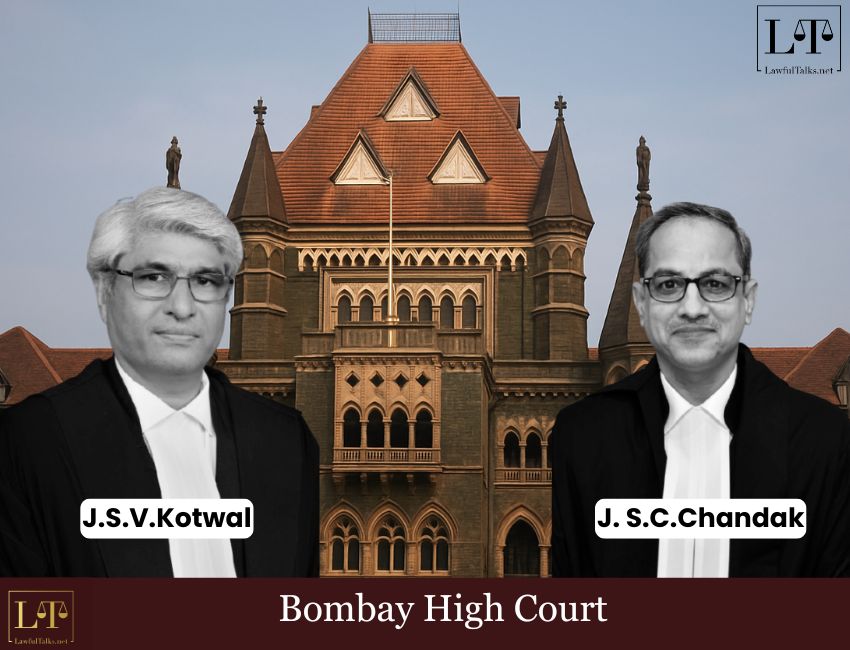Allahabad HC Sets Aside Afzal Ansari's Conviction, Allows Him to Continue as MP

The Bombay High Court bench of Justice Sarang V. Kotwal and Justice Shyam C. Chandak has set aside a conviction of the Appellant under Section 302 of the Indian Penal Code (IPC) and acquitted him of murder charges.

Factual Background
The prosecution case rested on the allegation that on 16 April 2015 at about 11:15 p.m., the Appellant fatally stabbed his friend (deceased) near Mumbra Railway Station following a quarrel. An FIR was lodged by the deceased’s brother, Roshan Jadhav (PW-3), and the Appellant was arrested the same night.
The trial court relied primarily on (i) the testimony of Brijesh Jaiswal (PW-1) as the sole eyewitness, (ii) the alleged oral dying declaration made by the deceased to his brother PW-3, and (iii) the recovery of a knife said to be stained with the deceased’s blood group, to convict the appellant under Section 302 IPC and sentence him to life imprisonment.
Evidence Considered
Testimony of the Sole Eyewitness (PW-1)
At the outset, the bench raised concerns over the fact that there were around 30-40 people gathered at the spot yet no other person was examined as an eyewitness, and upon no explanation being offered by the Investigating Officer, the court delved into the evidence of PW-1
PW-1 claimed that when he was about to close his stall around 11:00 p.m. on the day of the incident, he saw that a fight was going on between the Appellant and the deceased. He went there to separate the quarrel. The Appellant prevented him from intervening in the quarrel. PW-1 then stepped aside. A mob of around 30-40 people had gathered there watching the fight.
He deposed that the Appellant and Rohit were assaulting each other. The Appellant pulled out a knife from his pocket and gave a blow of the knife to Rohit’s stomach. He inflicted two to three more blows on the deceased’s stomach, who then fell down and then the Appellant ran away from the spot.
Upon perusal of his deposition, the bench noted that PW-1 was detained by the police overnight before his statement was recorded. The bench observed that. “It is quite clear that the police were treating him as a suspect and not as a witness. It is only after recording his statement in the morning at about 09:00 a.m., he was allowed to leave the Police Station. This clearly shows that, there is a possibility that his statement got recorded under coercion or that, he had given that statement to save his own skin.”
Thus, the court held that under such circumstances sufficient doubt was created and such evidence cannot be the basis of Appellant’s conviction.
Alleged Oral Dying Declaration (PW-3)
The deceased’s brother (PW-3) deposed that the deceased identified the Appellant as his assailant before succumbing to injuries. Medical evidence, however, indicated multiple deep stab wounds, including one that penetrated the heart and others affecting vital organs.
The Court reasoned that the severity of the injuries made it improbable that the deceased was in a physical condition to make a declaration. Furthermore, the brother reached the scene after some delay, adding to the doubt surrounding this testimony.
Recovery of Weapon
The recovery of a knife was presented as incriminating evidence. It was said to have been produced by the Appellant during investigation and had the presence of blood of the ‘O’ Group which is the same as the blood group of the deceased. However, the panch witness admitted that the memorandum recording the disclosure was already prepared by the police prior to his presence. This created doubt about the voluntariness of the disclosure and the authenticity of the recovery. The Court therefore declined to treat it as a reliable circumstance.
Forensic Corroboration
Another important aspect and the key contention of the Appellant was the absence of blood on Appellant’s clothes. The bench noted that the Appellant was arrested immediately after the lodging of FIR and thus this absence requires importance.
The prosecution’s case mentions that the same clothes were sent for the Chemical Analysis report and there is no recovery of his other clothes, which he could have worn at the time of the incident. Thus, the court ruled this circumstance in favor of the Appellant.
Ultimately, the bench observed that the prosecution, despite alleging the presence of many witnesses at the scene, failed to examine any independent corroborative evidence. The credibility of the sole eyewitness was undermined by the circumstances of his detention. The oral dying declaration was found inconsistent with medical evidence. The recovery of the knife was vitiated by doubts about police procedure. The absence of blood on the appellant’s clothes further weakened the prosecution case.
On cumulative consideration of these factors, the Court held that the prosecution had failed to prove guilt beyond a reasonable doubt. The conviction was accordingly set aside, and the Appellant was acquitted.
Case Title: Riyaz @ Bablu Sattar Mujawar v. State of Maharashtra., Criminal Appeal 101/2024
Advocates for Appellant: Ms. Jahnavi S. Karnik a/w. Smt. B. Sharada
Advocates for Respondent: Ms. Supriya Kak, APP

Akshaj Joshi
Law Student
Latest Posts
Categories
- International News 19 Posts
- Supreme Court 390 Posts
- High Courts 383 Posts



















































































































































































































































































































































































































































































































































































































































































































































































































